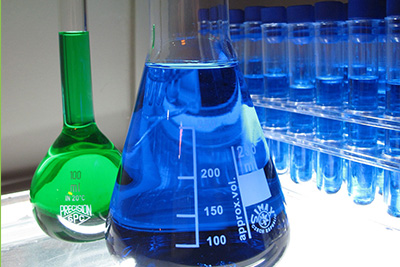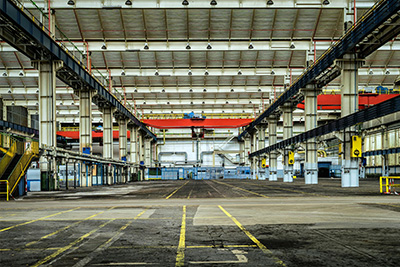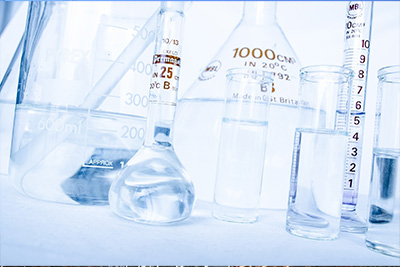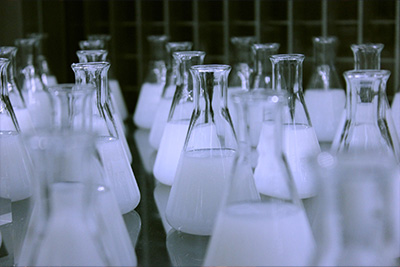-
![Butyltin Manufactu···]() 2024-12-01 Butyltin Manufacturing: Safety, Effi···
2024-12-01 Butyltin Manufacturing: Safety, Effi···The production of butyltins involves critical considerations for safety, efficiency, and environmental compliance. Ensuring worker safety requires stringent measures to handle toxic substances. Process optimization enhances efficiency, reducing waste and energy consumption. Compliance with environmental regulations is essential to minimize ecological impact, necessitating advanced treatment technologies for waste management. Balancing these factors is crucial for sustainable butyltin manufacturing practices.
read more > -
![Methyltin Producti···]() 2024-12-01 Methyltin Production and Environment···
2024-12-01 Methyltin Production and Environment···The production of methyltin compounds in the industrial manufacturing of polyvinyl chloride (PVC) involves complex chemical processes. These compounds, while effective as heat stabilizers, raise environmental concerns due to their potential toxicity. Current regulations mandate strict environmental standards to minimize the release of methyltin compounds into ecosystems, aiming to protect public health and the environment. Ongoing research focuses on developing alternative stabilizers that are less harmful, balancing industrial needs with ecological sustainability.
read more > -
![Octyltin Compounds···]() 2024-12-01 Octyltin Compounds in PVC Manufactur···
2024-12-01 Octyltin Compounds in PVC Manufactur···Octyltin compounds play a crucial role in enhancing the efficiency of PVC manufacturing processes. These compounds act as effective stabilizers, preventing degradation during production and prolonging the lifespan of PVC products. By incorporating octyltin compounds, manufacturers can improve product quality, reduce waste, and increase overall process efficiency. This results in cost savings and environmental benefits due to reduced material usage and waste generation.
read more > -
![Dimethyltin: Key T···]() 2024-12-01 Dimethyltin: Key Trends in Productio···
2024-12-01 Dimethyltin: Key Trends in Productio···Dimethyltin compounds are increasingly utilized as effective stabilizers in the production of Polyvinyl Chloride (PVC), playing a crucial role in enhancing the material's lifespan and performance. Recent trends indicate a significant rise in the demand for these compounds, driven by the expanding construction and automotive industries that rely heavily on PVC. Manufacturers are focusing on improving production techniques to meet this growing demand while maintaining quality standards. The market is witnessing increased investment in research and development to discover more efficient and eco-friendly dimethyltin formulations, aiming to address environmental concerns associated with traditional stabilizers. Overall, the future of dimethyltin in PVC stabilization appears promising, with ongoing developments expected to further boost its market position.
read more > -
![Innovations in Mer···]() 2024-12-01 Innovations in Mercaptide Tin Produc···
2024-12-01 Innovations in Mercaptide Tin Produc···Recent advancements in the production of mercaptide tin compounds have significantly improved the processing of heat-stable polymers. These compounds, known for their exceptional thermal stability, are now synthesized using novel catalytic methods that enhance yield and purity. The improved process not only reduces production costs but also minimizes environmental impact by lowering waste and energy consumption. This development paves the way for more efficient and sustainable manufacturing of heat-stable polymers, which are crucial for applications in aerospace, automotive, and electronics industries.
read more > -
![The Upstream Proce···]() 2024-12-01 The Upstream Process of Butyltin Man···
2024-12-01 The Upstream Process of Butyltin Man···The upstream process for butyltin manufacturing in advanced PVC applications involves the synthesis of organotin compounds, primarily tributyltin (TBT) and dibutyltin (DBT). These compounds are crucial for enhancing the thermal stability, weatherability, and durability of PVC materials. The manufacturing process typically begins with the reaction of butyl alcohol with tin metal or tin halides to produce intermediate butyltin compounds. Subsequent purification steps ensure the high quality and effectiveness of these additives. The precise control of reaction conditions, such as temperature and catalysts, is essential for achieving desired properties and yields.
read more > -
![Methyltin Producti···]() 2024-12-01 Methyltin Production and Industrial ···
2024-12-01 Methyltin Production and Industrial ···The production of methyltin compounds plays a crucial role in enhancing the heat stability of polyvinyl chloride (PVC), a widely used plastic material. These compounds act as stabilizers, preventing degradation during processing and prolonged use under high temperatures. The industrial-scale synthesis of methyltin involves complex chemical reactions that require precise control over reactant ratios and reaction conditions to ensure product quality and efficiency. Understanding these processes is vital for improving manufacturing techniques and ensuring the durability of heat-stable PVC products, which are essential in various applications including construction, automotive, and electrical industries.
read more > -
![Octyltin in PVC Ma···]() 2024-12-01 Octyltin in PVC Manufacturing: Innov···
2024-12-01 Octyltin in PVC Manufacturing: Innov···The article explores recent advancements in the use of octyltin compounds within the PVC manufacturing industry. These compounds are employed as stabilizers, offering significant improvements in product quality and longevity. The synthesis methods for octyltin have been refined, enhancing their efficiency and reducing environmental impact. Additionally, the application of these compounds has expanded, with new techniques improving their dispersion and effectiveness in PVC formulations. Overall, the innovations discussed highlight the ongoing efforts to optimize PVC production processes while maintaining high standards of performance and sustainability.
read more > -
![Dimethyltin Compou···]() 2024-12-01 Dimethyltin Compounds in Industrial ···
2024-12-01 Dimethyltin Compounds in Industrial ···Dimethyltin compounds are widely utilized in various industrial applications due to their unique chemical properties. These compounds are primarily produced through the reaction of metallic tin with methyl halides. Recent market trends indicate a steady demand, particularly in the manufacture of polyurethane foams, pesticides, and stabilizers for plastics. The production process has evolved to enhance efficiency and reduce environmental impact, leading to innovations in synthesis methods. As industries seek more sustainable solutions, the development of dimethyltin compounds continues to be driven by the need for eco-friendly alternatives and technological advancements.
read more >







